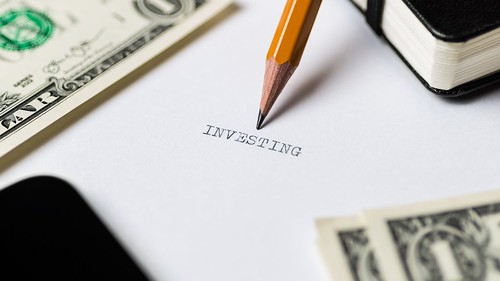You’re in your 20s and have your whole life to invest, right? Actually, it’s never too early to begin investing, and starting in your 20s could offer you advantages you won’t get if you wait. We have compiled a list of tips and tricks for investing in your 20s.
Investing in Your 20s: What Do You Need to Know?
Investing in your 20s is important to prepare for a financially stable future. One of the biggest myths about investing is you need a lot of money to start. Investing even a little in your 20s can pay off big in the long run. The earlier you invest, the more you’ll have for retirement. Investing is also an important part of funding goals such as buying a house.
Infinity Investing Featured Event
In this FREE event you’ll discover how the top 1% use little-known “compounders” to grow & protect their reserves. Our Infinity team of experts show you how to be the best possible steward of your finances and how to make your money and investments work for you instead of you working for them. Regardless of your financial situation today, you’ll have a road map to get to where you want to be.
Key Takeaways
Here are a few key takeaways about investing in your 20s:
- Short- and long-term goals help you determine where to invest your money.
- Employer-matched retirement funding is essentially free money.
- A Roth IRA allows you to pay fewer taxes on your retirement funds.
- High-yield savings accounts are ideal for short-term goals.
- Compounding interest offers the most advantages when you invest early.
- You have more room for riskier investments in your 20s.
How To Start Investing in Your 20s
Want to invest in your 20s but not sure where to start? Here are a few steps to get you started:
Set Investment Goals
Setting investment goals can help you create a plan. When setting goals, consider both the short and long-term. Identify your ideal age of retirement, including how much money you’ll need to be comfortable. Also think about lifelong goals such as traveling the world, buying a house, or paying off your student loans by a certain age. Set specific values and time limits for each of your goals.
Dividing your investment goals into time periods also helps you determine where to place the funds. Because you’ll need access to your money for short-term goals, the stock market might not be the best place for it.
Take Advantage of Employer Contributions
Some employers match contributions to 401(k) retirement plans, up to a specific amount. Because this is essentially free money that you don’t qualify for unless you invest, it’s always advisable to max out your contribution. Some employers require you to remain at the company for a minimum number of years to keep the contributions, so be aware of this when considering career changes.
Fund Your Retirement Yourself
You can open your own retirement account in addition to the one available through your employer. Opening a traditional IRA comes with tax benefits, which might reduce how much you owe in taxes at the end of the year.
You could also invest in a Roth IRA, which is a retirement account you fund with income that’s already been taxed. Your salary is likely to increase with more experience in your 30s and 40s, so investing in a Roth IRA retirement account now at your current tax rate is a good idea. Setting up automatic transfers from your bank account to your retirement account on payday is a good habit to start when investing in your 20s.

Leverage a Financial Adviser
A trusted financial adviser can help answer your most important questions about investing in your 20s. Financial advisers with low fees are great resources for setting up an investment strategy that will carry you from your 20s to your 30s, 40s, and beyond. The right financial adviser can also help you reevaluate your goals throughout life.
Consider High-Yield Savings Accounts
High-yield savings accounts allow you to invest funds you’ll need sooner. These are funds you might need to pay for college or buy a house. Savings accounts don’t offer as high a return as other investment types, but help you avoid penalties when withdrawing. Money markets and certificates of deposit (CDs) are also options but might require a longer investment period.
Fund an Emergency Account
In addition to investing in your future, it’s a good idea to fund an emergency account. Some experts recommend putting aside at least six months of living expenses before investing in riskier options such as the stock market. An emergency fund might come in handy if you lose your job or need expensive vehicle or home repairs.
Take Advantage of Compounding Interest
Compounding interest is one of the best reasons to invest in your 20s. Compound interest is the money you earn on an investment’s principal and accumulated interest. Say you invest $1,000 when you’re 20. If you never invest another dollar and keep the money invested, you’ll have around $32,000 by the time you’re 70.
If you wait until you’re 30 years old to invest that same $1,000, you’ll have just $16,000 by the time you’re 70. Every year you wait to invest, you lose out on compounding interest.
Diversify Your Investments
All investments come with some level of risk. Diversification is key to minimizing risk. Investing in different industries helps offset losses from one by earning in another.
Your risk tolerance should change over your lifetime. When investing in your 20s, you should have more room for risk. You’ll be working and bringing in income for the next 40 to 50 years, so you have time to try out riskier investments. As you get closer to retirement age, you might want to lower your risk, so you don’t lose the money you need to retire.
Investment Options for Beginners
You have a few investment options when investing in your 20s. Exchange-traded funds and mutual funds are lower-risk investments in the stock market. Instead of investing in a single company’s stock, you invest in a collection of stocks. This strategy allows you to diversify your portfolio and minimize your risk while still earning profitable returns.
Stocks are riskier investments, but with risk comes reward. Once you’ve set up contributions to a retirement account and funded an emergency account, investing in stocks can be a great way to earn.
Some financial experts recommend investing at least 10% of your annual income to retirement in your 20s. A good balance is 80-90% stocks (riskier investments) and 10-20% bonds (safer investments). Every 10 years, adjust this by 10%, putting more of your funds into safer investments.
Ready to create an investment strategy? Signing up for a free membership and learning all our tips and tricks is a great way to start.
Bonus Video:
Infinity Investing Featured Event
In this FREE event you’ll discover how the top 1% use little-known “compounders” to grow & protect their reserves. Our Infinity team of experts show you how to be the best possible steward of your finances and how to make your money and investments work for you instead of you working for them. Regardless of your financial situation today, you’ll have a road map to get to where you want to be.

